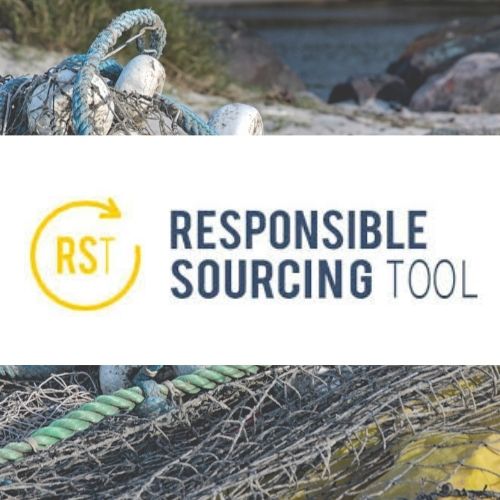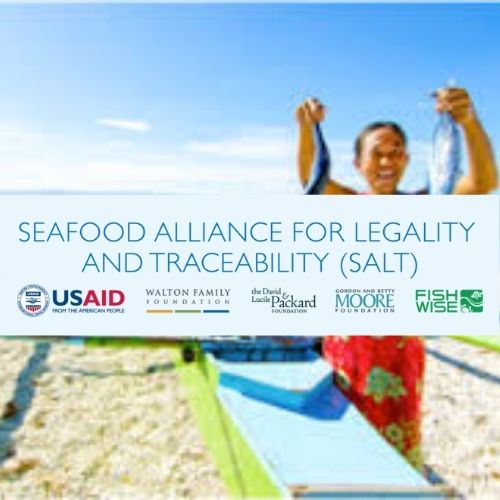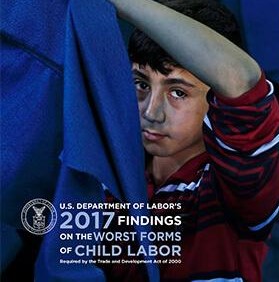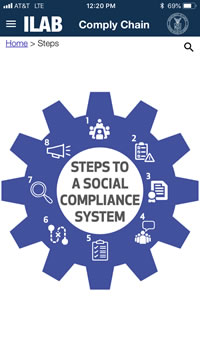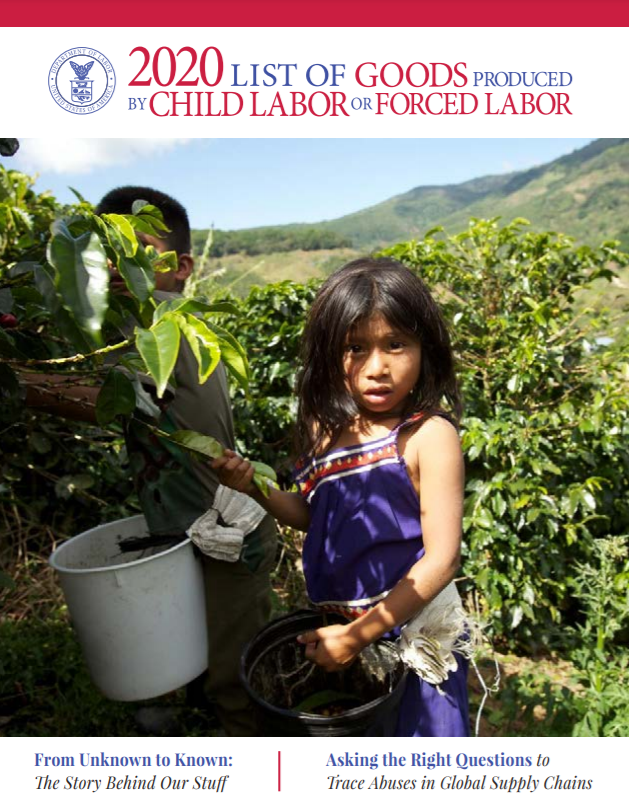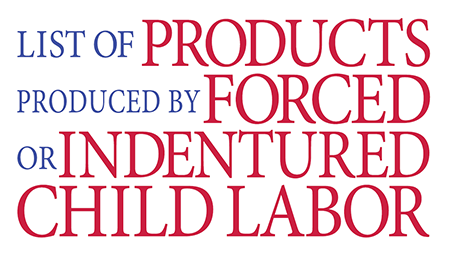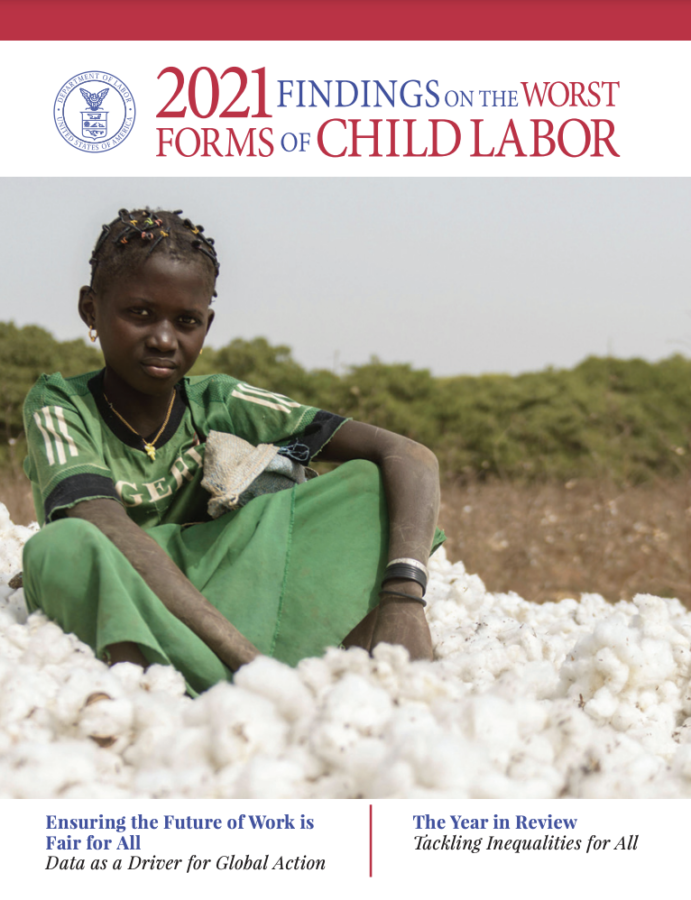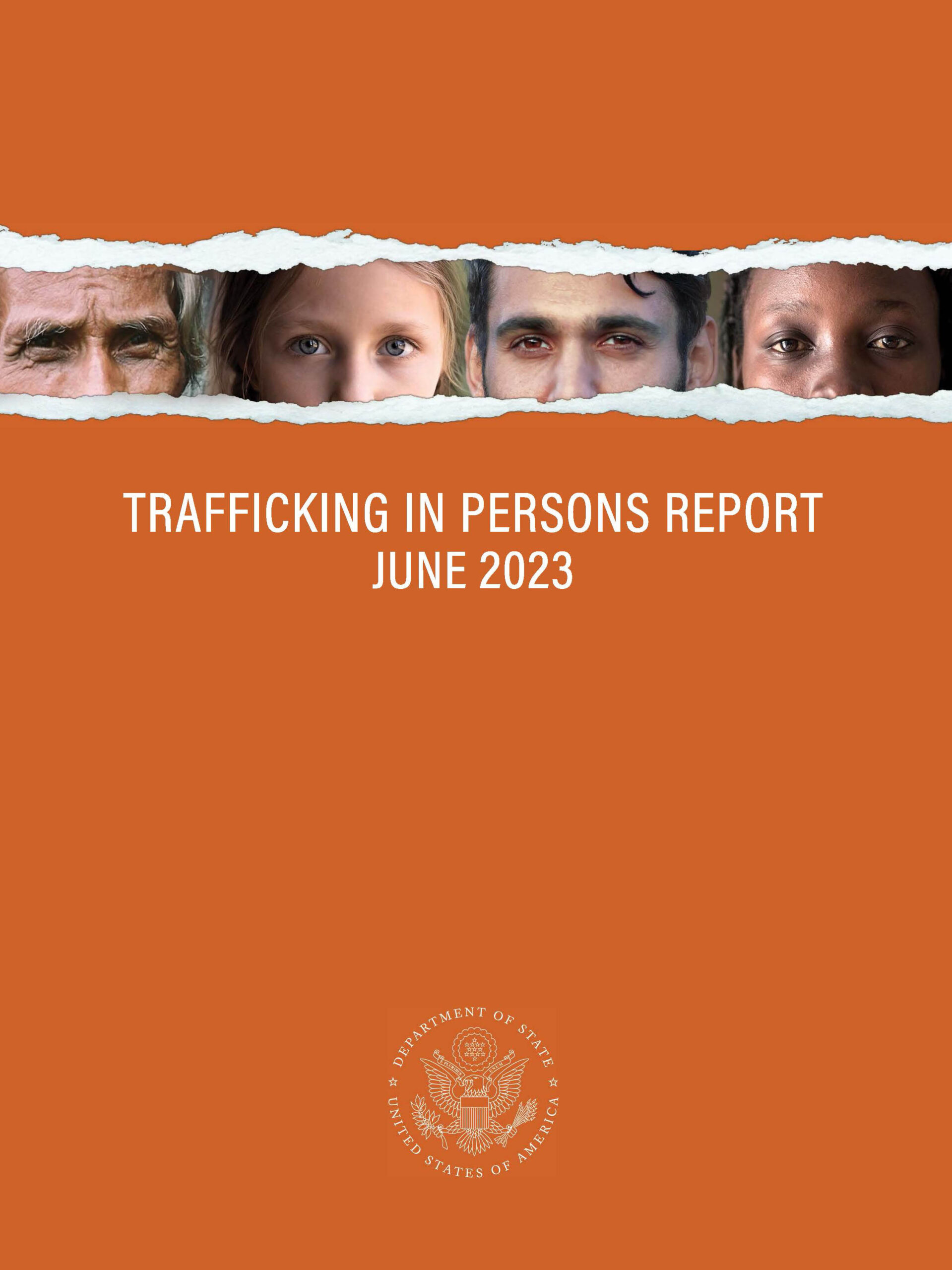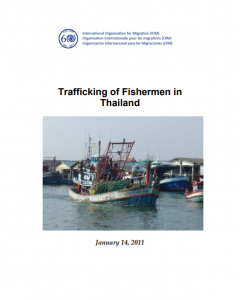Government Compliance Tools
The Federal Acquisition Regulation (FAR) “Ending Trafficking in Persons,” requires contractors to the federal government of the United States to take concrete steps to address and prevent human trafficking in their supply chains. With support from the U.S. Department of State Office to Combat Trafficking in Persons, Verité has developed a suite of tools that provide guidance and assistance to companies with seafood components of their supply chains.
The Seafood Alliance for Legality and Traceability (SALT) is a global community of governments, the seafood industry, and non-governmental organizations working together to share ideas and collaborate on solutions for legal and sustainable seafood, with a particular focus on traceability–the ability to track the movement of seafood through supply chains. SALT facilitates learning events for people to connect in-person and encourages online connections with the belief that sharing traceability knowledge will spark creative solutions.
Sweat & Toil: Child Labor, Forced Labor, and Human Trafficking Around the World is a comprehensive resource developed by U.S. Department of Labor documenting child labor and forced labor worldwide. This app fits the information of the International Labor Affairs Bureau’s three flagship reports (above) into one easy to use app.
Five things you can do with this app are:
- Check countries’ efforts to eliminate child labor
- Find child labor data;
- Browse goods (including shrimp) produced with child labor or forced labor;
- Review laws and ratifications; and
- See what governments can to do end child labor.
Comply Chain: Business Tools for Labor Compliance in Global Supply Chains
Child and forced labor in supply chains present serious and material risks to companies and industries. This app developed by U.S. Department of Labor targets companies and industry groups seeking to develop robust social compliance systems for their global production.
It contains many examples of specific good practices that companies, industry groups, and multi-stakeholder initiatives have put in place in eight areas of social compliance: (1) engaging stakeholders and partners, (2) assessing risks and impacts, (3) developing a code of conduct, (4) communicating and training across the supply chain, (5) monitoring compliance, (6) remediating violations, (7) independent review and (8) reporting performance.
U.S. Department of Labor Reports
List of Goods Produced by Child Labor or Forced Labor
The Department of Labor maintains a list of goods and their source countries which it has reason to believe are produced by child labor or forced labor in violation of international standards, as required under the Trafficking Victims Protection Reauthorization Act (TVPRA) of 2005 and subsequent reauthorizations.
ILAB released its initial TVPRA List in 2009 and updated it annually through 2014. ILAB now updates and publishes the List every other year, pursuant to changes in the law.
As of September 20, 2018, the List of Goods Produced by Child Labor or Forced Labor comprises 148 goods from 76 countries.
List of Products Produced by Forced or Indentured Child Labor
The Department of Labor, in consultation with the Departments of State and Homeland Security, publishes and maintains a list of products and their source countries which it has a reasonable basis to believe are produced by forced or indentured child labor, pursuant to Executive Order 13126. This List is intended to ensure that U.S. federal agencies do not procure goods made by forced or indentured child labor. Under procurement regulations, federal contractors who supply products on the List must certify that they have made a good faith effort to determine whether forced or indentured child labor was used to produce the items supplied.
As of October 3, 2016, the EO List comprises 35 products from 26 countries.
Findings on the Worst Forms of Child Labor
The Department of Labor’s annual Findings on the Worst Forms of Child Labor focuses on the efforts of certain U.S. trade beneficiary countries and territories to eliminate the worst forms of child labor through legislation, enforcement mechanisms, policies and social programs.
The Trade and Development Act of 2000 requires that countries fulfill commitments to eliminate the worst forms of child labor to be eligible for certain U.S. trade preference programs. It also requires the U.S. Secretary of Labor to issue annual findings on beneficiary country initiatives to implement these commitments.
U.S. Department of Justice Report
Department of Justice Task Force on Human Trafficking in Fishing in International Waters Report to Congress
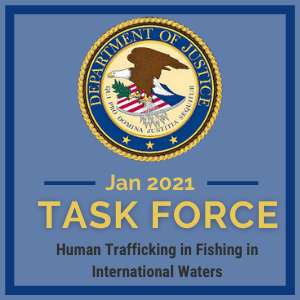
U.S. Department of State Report
Trafficking in Persons (TIP) Report
June 2023
The Trafficking in Persons (TIP) Report is the U.S. Government’s principal diplomatic tool to engage foreign governments on human trafficking. It is also the world’s most comprehensive resource of governmental anti-trafficking efforts and reflects the U.S. Government’s commitment to global leadership on this key human rights and law enforcement issue. It represents an updated, global look at the nature and scope of trafficking in persons and the broad range of government actions to confront and eliminate it. The U.S. Government uses the TIP Report to engage foreign governments in dialogues to advance anti-trafficking reforms and to combat trafficking and to target resources on prevention, protection and prosecution programs. Worldwide, the report is used by international organizations, foreign governments, and nongovernmental organizations alike as a tool to examine where resources are most needed. Supporting survivors, preventing trafficking, and bringing traffickers to justice are the ultimate goals of the report and of the U.S. government’s anti-trafficking policy.
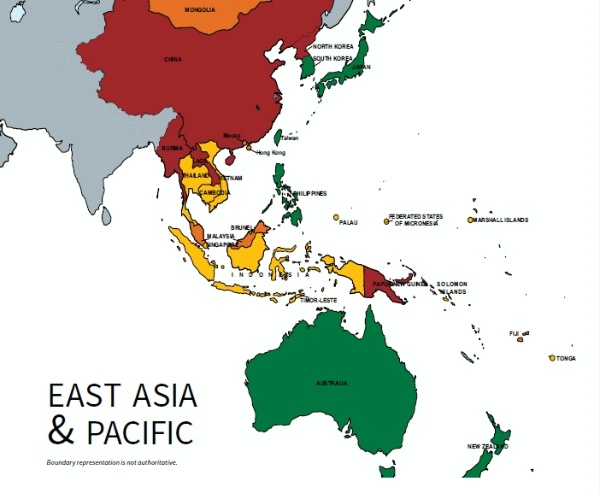
Third-Party Reports
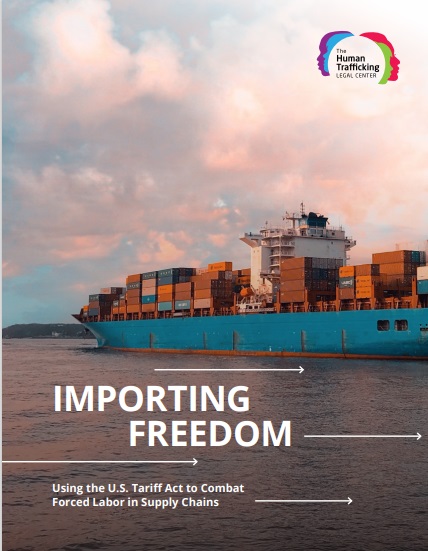
Importing Freedom: Using the US Tariff Act to Combat Forced Labor in Supply Chains
Human Trafficking Legal Center
June 2020
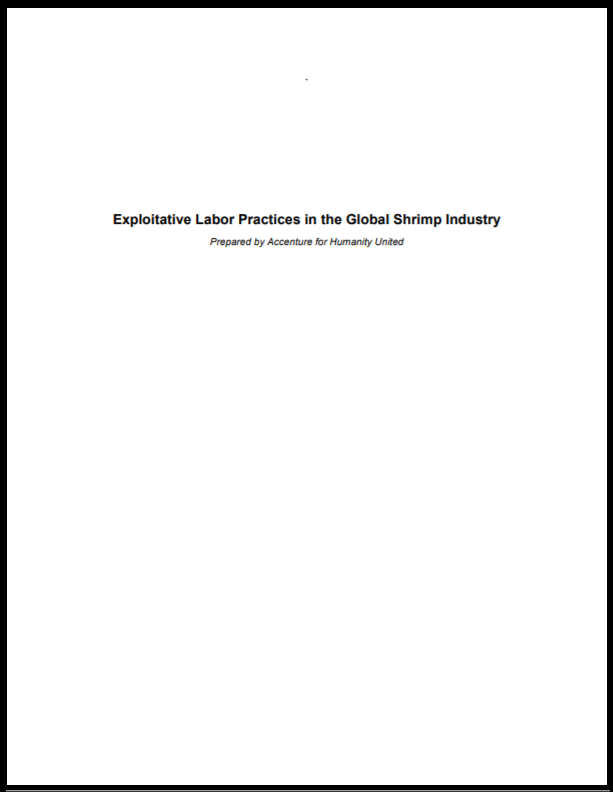
Prepared by Accenture for Humanity United
May 13, 2013
Provides in-depth analysis of the characteristics and causes of labor abuse in the shrimp industries of Bangladesh and Thailand. The study explains that at least some of the efficiencies believed to exist with farmed shrimp are due to artificially low labor costs:
“An important factor for the low cost of shrimp is the availability of cheap labor in producer countries. Farming and processing shrimp is particularly labor-intensive, often only feasible in countries where inexpensive labor is readily available. This has led to exploitative labor practices in various parts of the supply chain in export countries.”
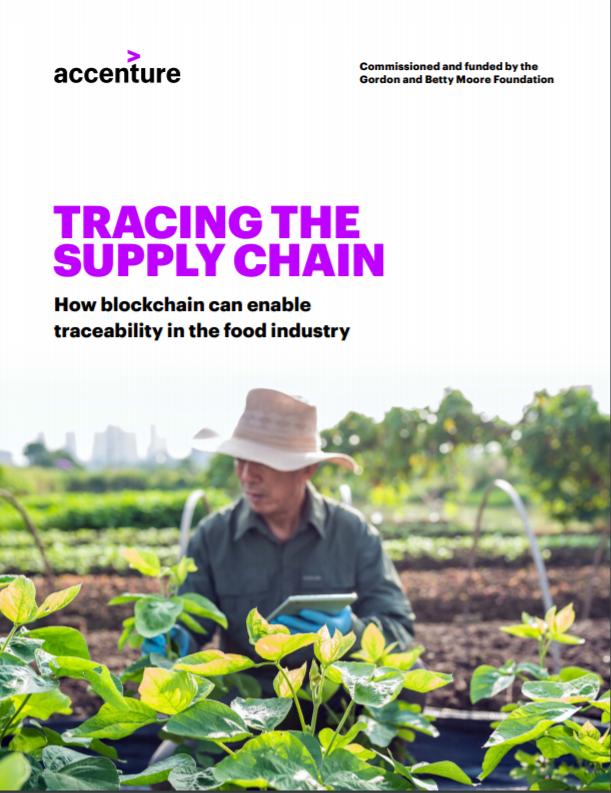
Human Trafficking Legal Center
The International Labor Organization estimates that 25 million men, women, and children are held in all forms of forced labor worldwide. Each year, the United States imports up to $144 billion worth of goods made using forced labor. Workers held in forced labor make the goods that we use every day. Whether we realize it or now, we have all contributed to this problem. In 1930, Congress passed the Tariff Act to prohibit the importation of goods made with forced and prison labor into the United States. Learn more in the following video about how the Human Trafficking Legal Center is using this act to create systems change and combat forced labor in global supply chains.
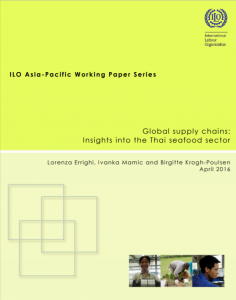
International Labour Organization
April 2016
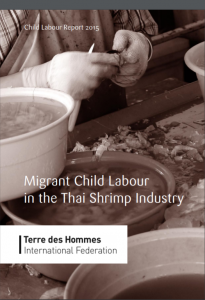
Terre des Hommes International Federation
Child Labor Report 2015
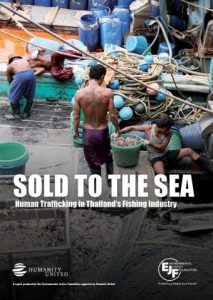
Environmental Justice Federation
May 29, 2013

